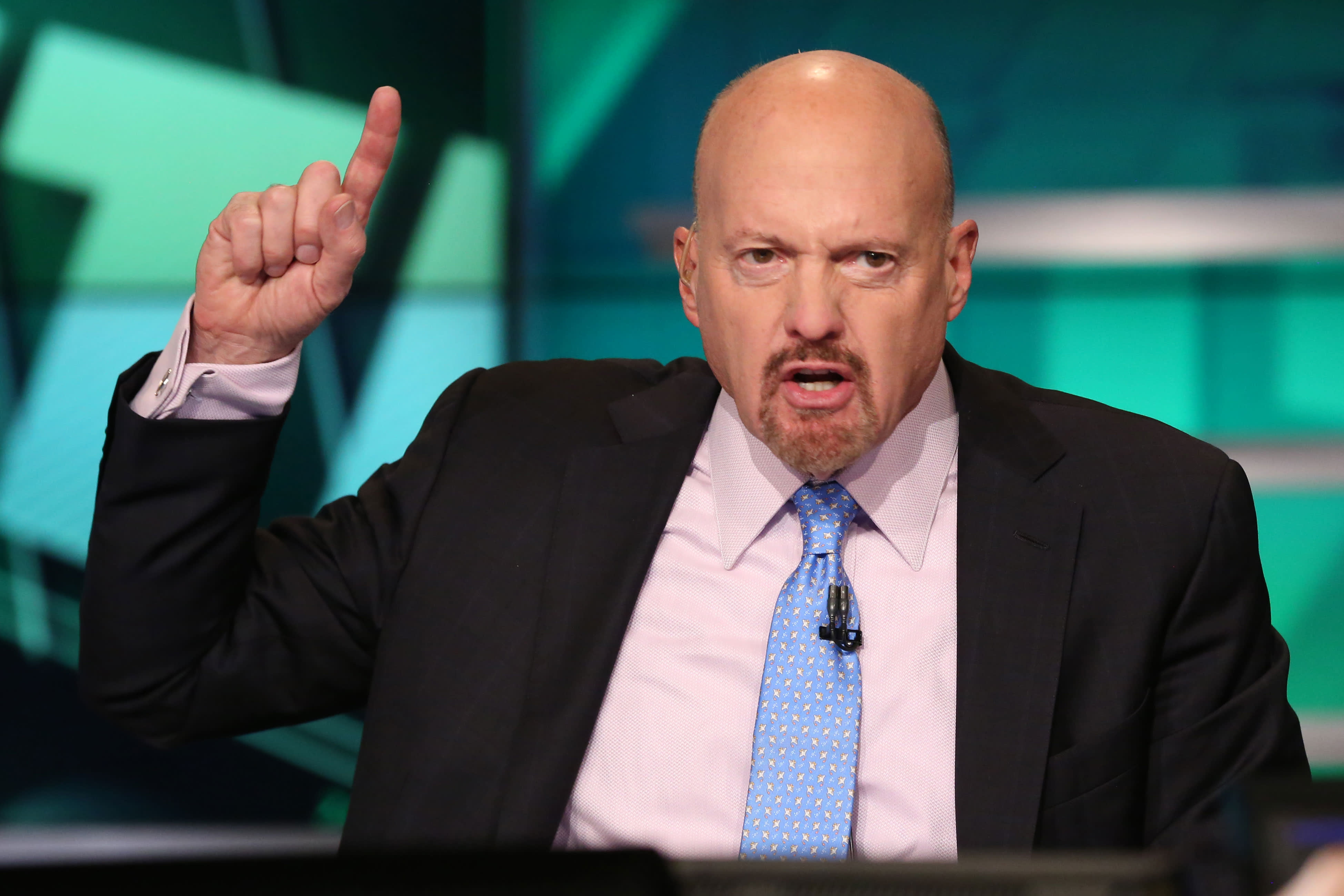Cramer rips AT&T leadership over the handling of WarnerMedia and the planned dividend cut

CNBC’s Jim Cramer on Tuesday stepped up his criticism of past and present AT&T leaders for their handling of WarnerMedia, the movie and television content and streaming unit the telecom giant now plans to break off and combine with Discovery.
In particular, Cramer took issue with AT&T’s plans to reduce its dividend after the completion of the merger, which basically unwinds the telecom giant’s $85 billion acquisition of Time Warner in 2018.
AT&T shareholders have a right to be upset, Cramer said on “Squawk Box,” as the stock fell more than 6% on Tuesday, extending its 2.7% decline from Monday’s session.
“The way they did it was completely suboptimal, and the people who are selling it are the long-term holders who feel very betrayed,” Cramer said, while blasting AT&T board member Geoffrey Yang, who appeared on “Squawk Box” earlier Tuesday and defended the planned dividend cut.
“I’m not a trader,” Yang said. “Just looking at what is in the best interest of long-term shareholders for both Discovery and for AT&T, I think this deal makes a lot of strategic and financial sense. It was clearly a tough tape yesterday, but like I said, I’m not a trader and I just look at kind of long term.”
“I think the resizing of the dividend makes a lot of sense and still leaves it within the top 95th percentile of all companies with dividends and gives us more flexibility for allocation of capital to grow the business in its core strengths in broadband and business and wireless,” Yang added.
Cramer was triggered by Yang’s “not a trader” comment. “This is owned by grandmothers. What an insult to their shareholders,” the “Mad Money” host said. “It’s just an insult. I’m sure they’ll say, ‘Oh, Cramer, what a joke.’ But, I mean, they’re the joke.” He added, “I know they have to say stuff, it’s corporate America. I expected better.”
“What an ill-advised strategy to come on our network and say that after pretty much having a CEO not that long ago … stand by the dividend,” Cramer said, referring to remarks from AT&T CEO John Stankey late last month and in March.
On April 22, when asked about the priority being placed on AT&T’s dividend, Stankey told CNBC: “My first priority is to get the stock price up so the dividend yield is not 6.9%. That’s what I would like to do to fix the problem. That’s what this management team is focused on. And if we keep executing in the consistent fashion we are now, that problem takes care of itself with math.” In addition to those comments, Stankey also defended AT&T’s dividend strategy in a CNBC interview March 12.
In fact, Cramer said, AT&T should be striking a more conciliatory tone around the entire WarnerMedia ordeal. On Monday evening, he called AT&T’s purchase of Time Warner — which endured a protracted battle with the Justice Department under then-President Donald Trump, “one of the dumbest mergers in recent history.” AT&T shares have fallen more than 20% in the past five years.
“I mean, why not just say, ‘We screwed up’? Why not just say, ‘We paid too much’? Why not just say, ‘We said that the dividend was safe, and we were wrong’?” Cramer said Tuesday morning.
AT&T also could say, “We have to make it so the company is competitive, and the way to do that is to offload something that didn’t really fit even though we said it fit and … the Randall logic wasn’t logic at all,” Cramer added, referring to former CEO Randall Stephenson, who was in charge of AT&T in 2016, when the Time Warner deal was first announced.
Neither AT&T nor Yang was immediately available to respond to CNBC’s request for comment concerning Cramer’s remarks.
But in an interview Monday on CNBC, Stankey defended AT&T’s dividend approach.
“It’s not to be unexpected that when we shift out as much of the cash flow as we do with the media company transaction, what we’ve done with the DirecTV transaction, that we’ve resized the dividend as a result of that,” Stankey said.
“But more importantly, using that cash flow to something that we know we can generate really attractive returns, far in excess of the 5%-ish yield that maybe the dividend returns, is the right thing to do for shareholders,” he said.




